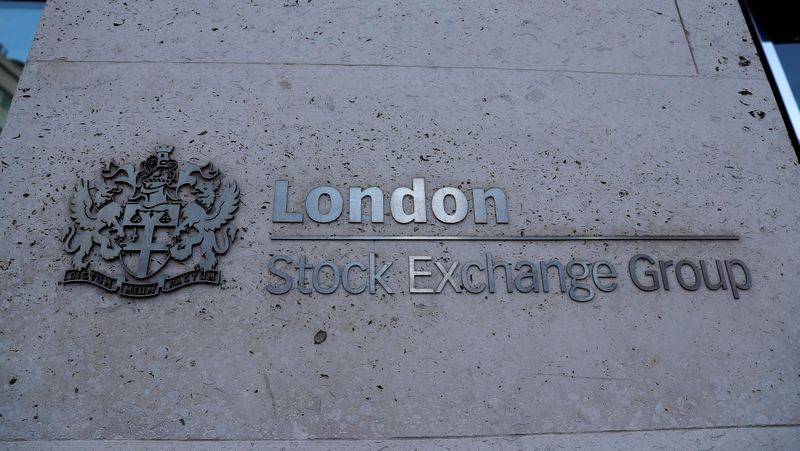(Reuters) - London's FTSE 100 fell more than 2% on Monday as a record number of new cases of the novel coronavirus in Beijing and underwhelming data from China raised concerns of a slower economic recovery from the COVID-19 pandemic.
The FTSE 100 (FTSE) was down 2.2% at a three-week low, with BP Plc (L:BP) sliding 4.9% to the bottom of the commodity-heavy index after saying it would write off up to $17.5 billion in the value of its assets.
The mid-cap FTSE 250 (FTMC) fell 1.4%, led by declines in mining (FTNMX1770), banking (FTNMX8350) and energy (FTNMX0530) sectors.
"The market had run up sharply since hitting a low in March, but now investors are getting a reality check (and) are realising the COVID-19 situation is not under control yet," said James McGlew, executive director of corporate stockbroking at Argonaut in Perth.
UK stock markets last week halted a robust two-month rally as optimism around easing coronavirus-induced lockdowns was dulled by a grim forecast by the U.S. Federal Reserve and a resurgence in COVID-19 cases.
Data on Monday showed a weaker-than-expected increase in China's factory production in May, while in Britain, the number of shoppers in high streets, retail parks and shopping centres fell nearly 82% from a year earlier.
Low-cost airline easyJet (L:EZJ) shed 2.7% even as it resumed flying for the first time since March 30. The wider travel sector (FTNMX5750) was off 2.9%, falling for the fifth session in six.
Recruiting firm SThree (L:STEMS) slid 1.7% on reporting lower half-year net fees as the pandemic forced businesses around the world to put a freeze on hiring activity.

Business supplies distributor Bunzl (L:BNZL) was the sole gainer on the FTSE 100, jumping 4.9%, as it forecast an increase in revenue for the first half of the year, boosted by robust demand from the grocery, safety and healthcare sectors.